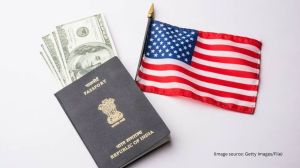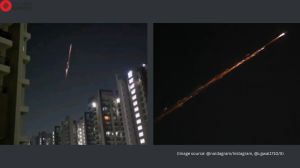‘Forget the troublesome problems, let us discuss philosophy instead’
NIXON: I hope to talk with the Prime Minister and later with the Chairman about issues like Taiwan, Vietnam and Korea. I also want to talk a...

NIXON: I hope to talk with the Prime Minister and later with the Chairman about issues like Taiwan, Vietnam and Korea. I also want to talk about the future of Japan, the future of the continent, and what India’s role will be; and on the broader world scene, the future of US-Soviet relations. Because only if we see the whole picture of the world and the great forces that move the world will we be able to take the right decisions about the immediate and urgent problems that always completely dominate vision.
MAO: All those troublesome problems I don’t want to get into very much. I think our topic is better—philosophic questions.
|
KISSINGER: We thought all socialist, communist states were the same phenomenon. We didn’t understand until the President came into office the different nature of revolution in China. NIXON: What brings us, China together is a recognition that what’s important is not a nation’s internal political philosophy. What is important is its policy toward the rest of the world and toward us. China doesn’t threaten the territory of the US, the US has no territorial designs on China. Because our attitudes are the same on these two issues, we don’t threaten each other’s territories. That cannot be said about some other nations in the world. MAO: Neither do we threaten Japan or South Korea. NIXON: Nor any country. Nor do we. |
NIXON: For example, Mr Chairman, it is interesting to note that most nations would approve of this meeting, but the Soviets disapprove, the Japanese have doubts which they express, and the Indians disapprove. So we must examine by and determine how policies should develop to deal with the whole world, as well as the immediate problems such as Korea, Vietnam and of course, Taiwan.
MAO: Yes, I agree.
NIXON: We, for example, must ask ourselves—again in the confines of this room—why the Soviets have more forces on the border facing you than on the border facing Western Europe. We must ask ourselves, what is the future of Japan? Is it better—here I know we have disagreements—is it better for Japan the neutral, totally defenseless, or is it better for a time for Japan to have some relations with the United States? The point being—I am talking now in the realm of philosophy—in international relations there are no good choices. One thing is sure can have no vacuum, because they cannot be filled. The Prime Minister, for example, has pointed out that the United States reaches out its hands and that the Soviet Union reaches out its hands. The question is which danger the People’s Republic faces, whether it is the danger of American aggression or Soviet aggression.
MAO: In the present time, the question of aggression from the United States or aggression from China is relatively small; that is it could be said that this is not a major issue, because the present situation is one which a state of war does not exist between the two countries. You want withdraw some your troops back on your soil; ours do not go abroad.
Therefore the situation between our two countries is strange because during the past years our ideas have never met in talks. Now the time less than 10 months since we began playing table tennis; if one counts the time since we put forward your suggestion at Warsaw it is less than two years. Our side also is bureaucratic in dealing with matters. For example you wanted some exchange of persons on a personal level, things like that; also trade. But rather than deciding that we sick with our stand that without settling major issues there is nothing to do (to be done) with smaller issue. I myself persisted in that position. Later I saw you were right, and we played table tennis. The Prime Minister said this was also after President Nixon came to office.
The former President of Pakistan introduced President Nixon to us. At that time, our Ambassador to Pakistan refused to agree on our having a contact with you. He said it should be compared whether President Johnson of President Nixon would be better. But President Yahya said the two men cannot be compared, these two men are incomparable. He said that one was like a gangster—he meant President Johnson. I don’t know how he got that impression. We on our side were not very happy with that President either. We were not very happy with your former Presidents, from Truman through Johnson.
In between there were eight years of a Republican President. During that period probably you hadn’t thought things out either…
KISSINGER: Mr Chairman, the world situation has also changed dramatically during that period. We’ve had to learn a great deal. We thought all socialist/communist states were the same phenomenon. We didn’t understand until the President came into office the different nature of revolution in China.
NIXON: Mr Chairman, I am aware of the fact that over a period of years my position with regard to the People’s Republic was one that the Chairman and the Prime Minister totally disagreed with. What brings us together is a recognition of a new situation in the world and a recognition on our part that what is important is not a nation’s internal political philosophy. What is important is its policy toward the rest of the world and toward us. That is why we have differences. The Prime Minister and Dr Kissinger discussed these differences.
|
MAO: People like me sound a lot of cannons. Things like ‘‘the whole world should unite and defeat imperialism, revisionism, and all reactionaries, and establish socialism’’. NIXON: The Chairman came from a very poor family to the top of the most populous nation in the world. I also came from a very poor family to the top of a very great nation. History has brought us together. MAO: It is alright to talk well, alright if there are no agreements. Why is it that we must be able to reach results? If we fail the first time, people will ask why we failed. The only reasons would be that we have taken the wrong read. What will they say if we succeed the second time? Story continues below this ad |
You know China doesn’t threaten the territory of the United States, I think you know the United States has no territorial designs on China. We know China doesn’t want to dominate the United States. We believe you too realise the United States doesn’t want to dominate the world. Also — maybe you don’t believe this, but I do — neither China nor the United States, both great nations, want to dominate the world. Because our attitudes are the same on these two issues, we don’t threaten each other’s territories.
Therefore, we can find common ground, despite our differences, to build a world structure in which both can be safe to develop in our own ways on our own roads. That cannot be said about some other nations in the world.
MAO: Neither do we threaten Japan or South Korea.
NIXON: Nor any country. Nor do we…. Mr Chairman, we know you and the Prime Minister have taken great risks in inviting us here. For us also it was a difficult decision. But having read some of the Chairman’s statements, I know he is one who sees when an opportunity comes, that you must seize the hour and seize the day.
I would also like to say in a personal sense—and this to you Mr Prime Minister—you do not know me. Since you do not know me, you shouldn’t trust me. You will find I never say anything I cannot do. And I always do more than I can say. On this basis I want to have frank talks with the Chairman and, of course, with the Prime Minister.
MAO: (pointing to Kissinger) ‘‘Seize the hour, and seize the day’’. I think that, generally speaking, people like me sound a lot of cannons. That is, things like ‘‘the whole world should unite and defeat imperialism, revisionism, and all reactionaries, and establish socialism’’.
NIXON: Like me. And bandits.
MAO: And perhaps you as an individual may not be among those to be overthrown. They say that he (Dr Kissinger) is also among those not to be overthrown personally. And if all of you are overthrown, we wouldn’t have any more friends left.
NIXON: Mr Chairman, the Chairman’s life is well-known to all of us. He came from a very poor family to the top of the most populous nation in the world, a great nation.
My background is not so well known. I also came from a very poor family, and to the top of a very great nation. History has brought us together. The question is whether we, with different philosophies, but both with feet on the ground, and having come from the people, can make a breakthrough that will serve not just China and America, but the whole world in the years ahead. And that is why we are here.
MAO: Your book The Six Crises is not a bad book.
NIXON: He (Mao) reads too much.
MAO: Too little. I don’t know much about the United States. I must ask you to send some teachers here, teachers of history and geography…
It is alright to talk well and also alright if there are no agreements, because what use is there if we stand in deadlock? Why is it that we must be able to reach results? People will say … if we fail the first time, people will talk why are we not able to succeed the first time? The only reasons would be that we have taken the wrong read. What will they say if we succeed the second time?
(Excerpted from The White House & Pakistan: Secret Declassified Documents, 1969-1974 by Fakir Syed Aijazuddin, OUP)
READ
Opposing India did cost me politically, but it was the right thing to do: Nixon
Photos




- 01
- 02
- 03
- 04
- 05



























